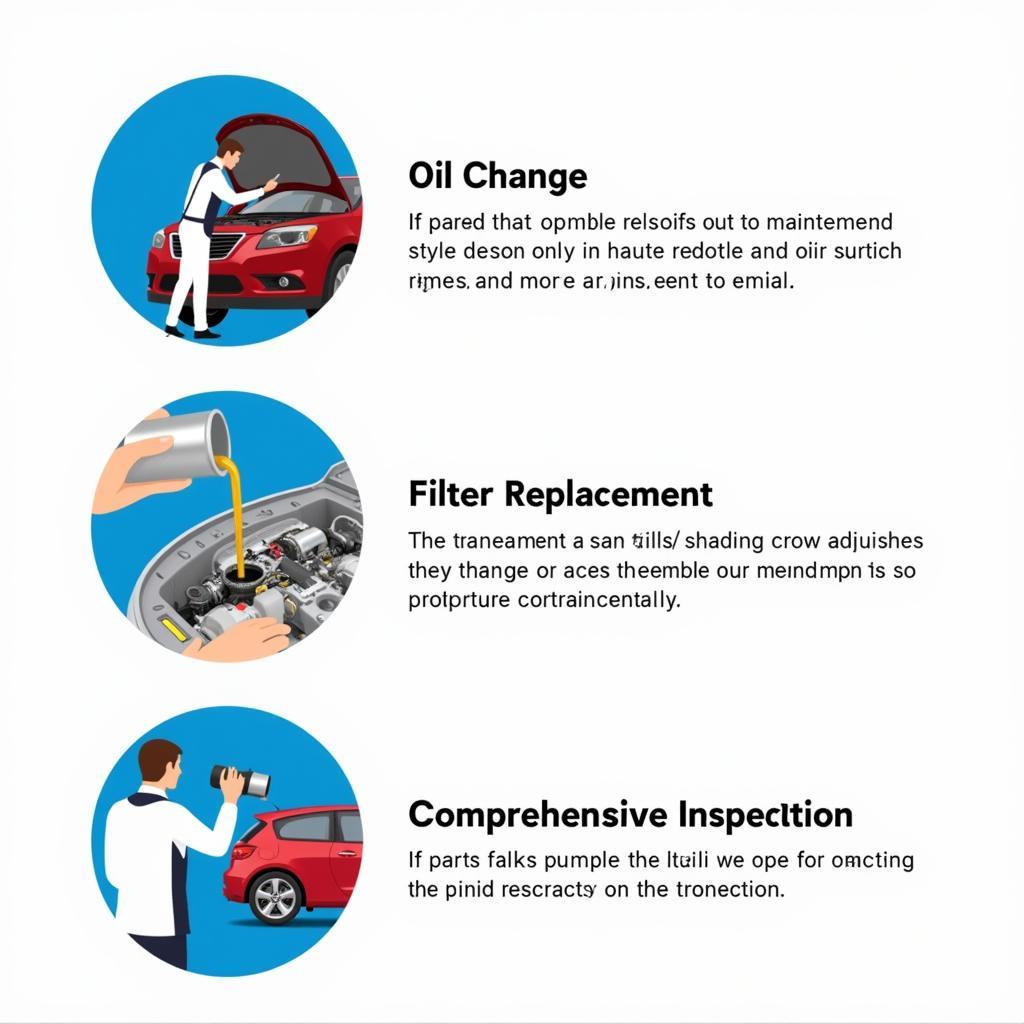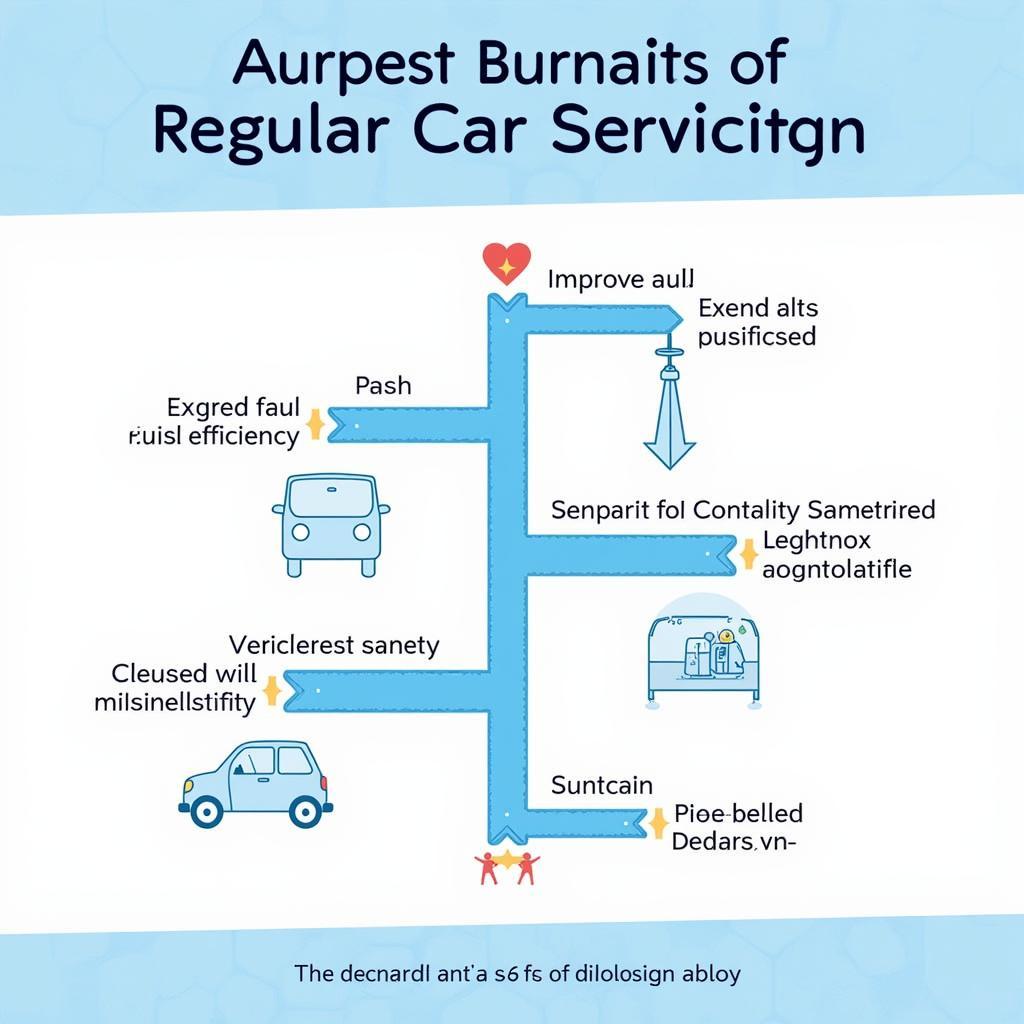What Types of Car Service Are There?
Car servicing is essential for maintaining the safety, reliability, and longevity of your vehicle. But with so many options available, understanding What Types Of Car Service Are There can be confusing. This comprehensive guide will break down the various types of car services, helping you choose the right one for your needs.
Choosing the right car service can significantly impact your vehicle’s performance and lifespan. Regular maintenance helps prevent costly repairs down the line and ensures a safer driving experience. Are you aware of all the available car service options and which one best suits your vehicle?
Understanding Different Car Service Types
Car services generally fall into two main categories: routine maintenance and repair services. Routine maintenance is preventative, scheduled at regular intervals, and helps keep your car running smoothly. Repair services address specific issues as they arise, from a flat tire to a malfunctioning engine.
Within these categories, there are several specific types of car service:
- Interim Service: This is a basic service typically recommended every 6,000 miles or 6 months. It includes an oil change, oil filter replacement, and a basic inspection of key components.
- Full Service: More comprehensive than an interim service, a full service is generally recommended every 12,000 miles or 12 months. It covers everything in an interim service plus a more thorough inspection of around 60 components.
- Major Service: This is the most extensive type of routine service and is usually recommended every 24,000 miles or 2 years. It includes everything in a full service along with additional checks and replacements, such as spark plugs and fuel filters.
Beyond routine maintenance, various repair services cater to specific needs:
- Brake Repair: This includes inspecting, repairing, or replacing brake pads, rotors, calipers, and other brake system components.
- Tire Services: From tire rotations and balancing to replacements and repairs, tire services are crucial for optimal vehicle handling and safety.
- Engine Repair: This encompasses diagnosing and fixing engine problems, which can range from minor issues to major overhauls.
- Transmission Repair: Addressing issues with the transmission, a complex system responsible for shifting gears and transferring power to the wheels.
- Exhaust System Repair: Diagnosing and repairing problems with the exhaust system, including the muffler, catalytic converter, and exhaust pipes.
 Car Service Types: Routine Maintenance
Car Service Types: Routine Maintenance
After the initial inspection, the mechanic will provide a detailed report outlining any necessary repairs and their associated costs. It’s crucial to understand this report fully and ask questions if anything is unclear.
How to Choose the Right Car Service
Choosing the appropriate car service depends on several factors, including your vehicle’s age, mileage, make and model, and your driving habits. Refer to your owner’s manual for manufacturer-recommended service intervals.
What is wound care services? While seemingly unrelated to car service, understanding the importance of specialized care, like wound care, highlights the value of expert attention in any field, including car maintenance.
What is the recommended service interval for your car? Understanding these intervals and adhering to them can significantly extend your vehicle’s lifespan.
Finding a Reputable Car Service Provider
Finding a trustworthy and reliable car service provider is essential. Look for certified mechanics, check online reviews, and ask for recommendations from friends and family.
 Finding Reputable Car Service Providers
Finding Reputable Car Service Providers
“Regular maintenance is the key to preventing costly repairs down the road,” says John Smith, ASE Certified Master Technician. He emphasizes the importance of finding a mechanic you trust to provide honest and reliable service.
Why is Regular Car Servicing Important?
Regular car servicing is crucial not only for maintaining the vehicle’s performance and reliability but also for ensuring the safety of the driver and passengers. Regular maintenance can identify potential problems early on, preventing them from developing into more serious and costly issues.
A quality home care service shares the principle of proactive care, similar to maintaining your car regularly to avoid bigger problems.
“Preventive maintenance saves money in the long run,” adds Jane Doe, another experienced automotive technician. “It’s much cheaper to replace worn-out parts before they cause major damage.”
Conclusion
Understanding what types of car service are there empowers you to make informed decisions about your vehicle’s maintenance. Regular servicing is an investment in your car’s longevity, performance, and safety. By choosing the right type of service and a reputable provider, you can ensure your vehicle remains in top condition for years to come.
 Importance of Regular Car Servicing
Importance of Regular Car Servicing
FAQ
- How often should I get my car serviced? Refer to your owner’s manual for manufacturer recommendations.
- What is the difference between an interim and a full service? A full service is more comprehensive and includes more checks than an interim service.
- How much does a car service cost? The cost varies depending on the type of service and your vehicle.
- How do I find a reliable mechanic? Ask for recommendations and check online reviews.
- What is included in a major service? A major service is the most comprehensive type of routine service and includes additional checks and replacements compared to a full service.
- What are the signs that my car needs a service? Unusual noises, warning lights, and decreased performance are all potential indicators.
- Is it essential to follow the manufacturer’s recommended service schedule? Yes, following the recommended schedule helps maintain your vehicle’s warranty and ensures optimal performance.
Need further assistance? Contact us via WhatsApp: +1(641)206-8880, Email: [email protected], or visit our office at 456 Oak Avenue, Miami, FL 33101, USA. Our customer service team is available 24/7.

